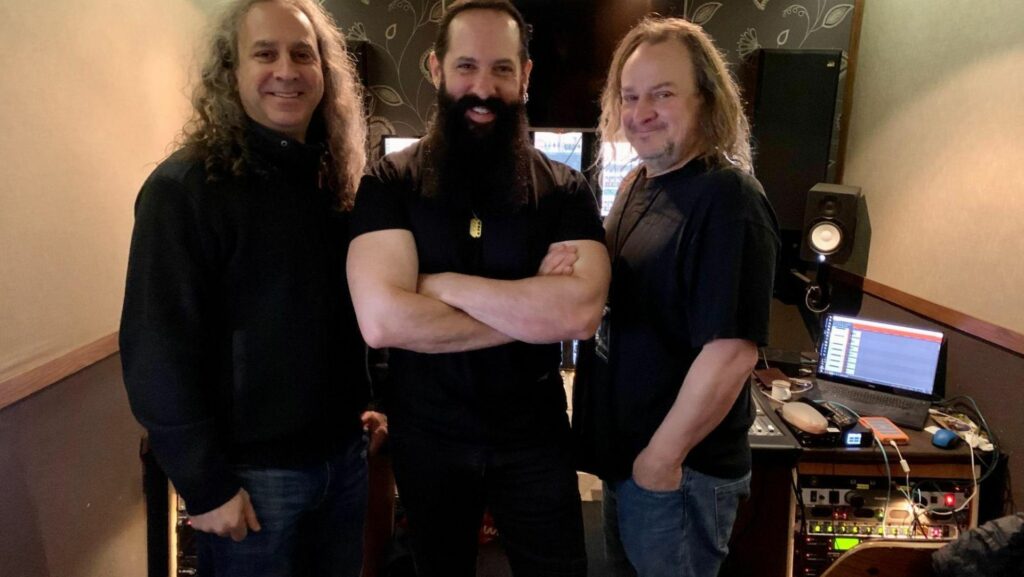A Game of Luck & Creativity: François Lamoureux on Success, Starting for Right & Wrong Reasons, & Living Off Cereal
In partnership with APG
By Ethan Stone

Millions of people have burning dreams of starting a venture, trying something new, and succeeding—enjoying the famous ‘sex, drugs, and rock n’ roll lifestyle. What most don’t take into account is that failure is an inherent part of bravery, and it’s more common than many realize. Entrepreneurship, for instance, is contemplated by 62% of people; yet, as everyone is well aware, only 10% of startups succeed. The competitive music industry is even more challenging, with only about 0.5% of musicians achieving professional success. Film is no different, as only an estimated 2% can make a living acting.
Is it all about talent and creativity? Dedication and hard work? Luck? Maybe a combination of all of these?
A Spotlight on Intention and Creativity
While no one truly knows the answer, François Lamoureux, CEO of CXC™ and Fogo®.tv and one of the very few who have reached the top of the music industry, argues that—apart from all the surrounding noise—intention is crucial. “Is your journey driven by money, power, and recognition, or is it to fulfill that inner sacred calling?” he muses. That calling is what François calls ‘the curse of creativity,’ encouraging dreamers to embrace this mystical force and choose paths illuminated by curiosity and passion.
An Odyssey Through Arts & Science
A man of many talents, François believes that it was his lifelong infatuation with discovery, whether in arts or science, that helped him overcome hurdles and know what success tastes like. With royalties earned at just 13, his music journey started; leading François to work with everyone from Harry Connick Jr. and Willie Nelson to Rush, Slipknot, and deadmau5, and a Grammy and Emmy in his portfolio.
Many with the same great run in producing, directing, mixing, recording, and mastering music would pin it all on talent or hard work.“I have been lucky,” François simply says. “It’s invaluable to work with one great artist in your life; I’ve worked with dozens of them, getting a peek under the hood of their creativity. One thing I know is that it is harder to get into the small group of people who have worked with these great artists than in any Ivy League school. Thankfully, it’s also a lot more fun.”
Later, François returned to his first love—science. On a mission to commercialize it, he co-founded CXC™, working alongside researchers to transform their ‘mad scientist’ ideas into practical technologies. The company, which focuses on University Technology Transfer, seems like a significant departure from music. “It is and it isn’t,” François adds. “I had always dreamed of being a research chemist but put that on the back burner to maximize the opportunity to make a living with music.”
The Eddie Van Halen Syndrome
His return illuminated two things: François’ skills were transferrable, and scientists who create are really artists in another uniform. In this landscape, François also discovered a thing or two about innovation: firstly, it occurs the same way in music and in science, and, secondly, it is created by humans. Magic happens once humans are enabled to thrive, and CEOs, lead singers, and superstars appear. The problem is, according to François, that people are all told the same lie: EVERYONE can be an entrepreneur.
He calls it the Eddie Van Halen Syndrome, recounting a story from around the time MTV was first introduced:
I was 14 years old, puberty hit for me and my friends, everyone was rocking the little peach fuzz mustaches, and Eddie Van Halen was king. On MTV, everyone was watching guitar players and all these girls with big hair that people cringe and laugh at today. The thing is, these videos had a great effect on my friends who suddenly all wanted to play guitar and be the next Van Halen. At that point, I was already pretty good at guitar, and, surprisingly or not, it wasn’t helping me in any way with the girls. They did not listen and they all bought guitars. After a while, they realized it was suspiciously difficult to play like Eddie Van Halen, and then they all quit. Today, kids don’t want to be rock stars anymore; they want to be Elon Musk, and for all the wrong reasons.
Saving Success from Oblivion
As François emphasizes, Eddie Van Halen did not start playing guitar for the girls, just like Elon Musk did not start innovating for the money. When people venture into entrepreneurship, driven by the lie that everyone can make it, they believe the same fantasy as every little girl being able to become the next Rihanna, Madonna, or Taylor Swift. He adds that today’s kids have it even worse, working relentlessly to ‘do okay’ but rarely reaching the peak of their ambitions.
Although every now and then, Rihannas, Eddie Van Halens, and Bill Gates do appear, François believes that many people’s success is eventually diluted into oblivion—later creating entrepreneurs with broken dreams living off boxes of cereal. Is it even worth trying?
“Go out there and try to be lucky,” François concludes. “But be mindful that everyone can be creative and everyone can be a star. Luck, timing, and magic have a hand in it all, but, either way, don’t do it for the money. Purity of intent seems to attract luck and magic, so don’t lose that. Get used to surviving off boxes of cereal coming out of the gate but don’t let that stop you. Always follow your creativity; now, go get ’em.”
